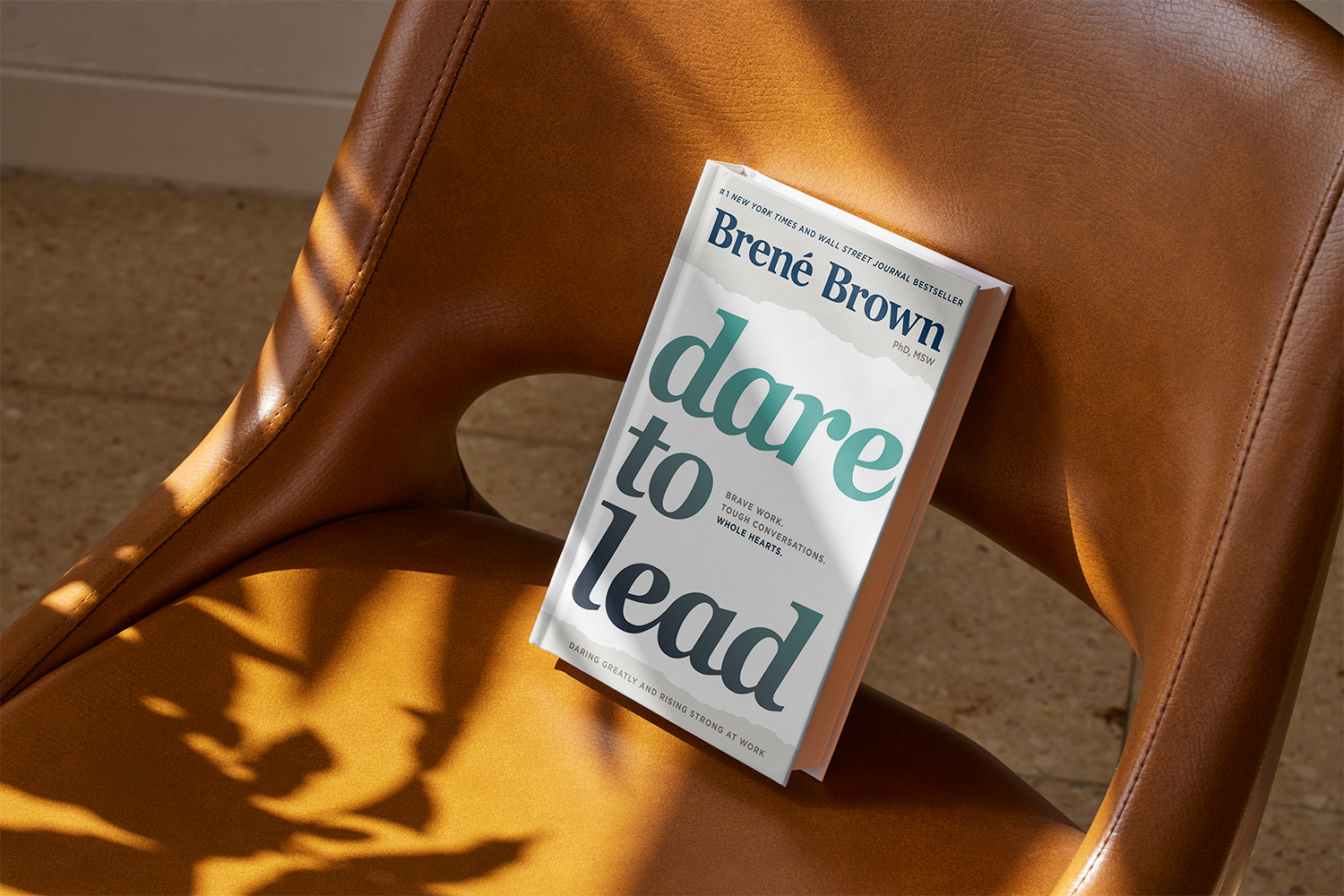Brené Brown has been researching vulnerability, shame and resilience for two decades. Her TED talk on “The power of vulnerability” has 37 million views and is one of the five most watched. Her latest book Dare to Lead draws on her consulting and personal experience, teaching and evaluating the “Brave Leaders” course and interviewing 150 global C-level leaders to unpack the ingredients of brave leadership and courageous organizations.
US Military are among the organisations she has worked with. She writes it was especially illuminating for her theories on vulnerability when she asked several hundred Special Forces soldiers:
“Vulnerability is the emotion that we experience during times of uncertainty, risk, and emotional exposure. Can you give me a single example of courage that you’ve witnessed in another solider or experienced in your own life that did not require experiencing vulnerability?” (p.23)
The group was silent in response, till one soldier spoke up admitting courage always requires managing massive vulnerability. That underlined for me the importance of Brown’s ideas for soldiers in the Australian Army, valuing as we do Courage alongside of Service, Respect, Integrity and Excellence.
Brown defines leadership as “anyone who takes responsibility for finding the potential in people and processes, and who has the courage to develop that potential.” She encourages her readers to approach leadership with courage and whole-heartenedness, rather than functioning out of hurt and pain.
She unpacks four skill-sets of courageous leadership. The first skill, explored in over half the book, is “rumbling with vulnerability”. This is about tough conversations in which we stay vulnerable, generous and curious. Brown illustrates a diverse set of tools for meetings and performance evaluation: asking people to “say more”, communicating and recording decisions clearly (because “clear is kind, unclear is unkind”), being ready to pause and circle back on conversations later, avoiding cynicism and sarcasm as control techniques, catching people doing things right, and supporting rest and recovery rather than workaholic competitiveness. The most important underlying skill I appreciated was being aware of the armour that drives dysfunctional relationships and teamwork. It is important to name the shame that drives us. For example, Brown helped me realise how my narcissism as “shame-based fear of being ordinary” and associated striving for success and recognition can drive my workaholism, job applications and athletic achievement. Some of this derives from childhood scars of being picked last for sport as well as family-of-origin messages about the importance of appearance, work and self-achievement. I am learning the grace of “enough” that overrides the shame of “never good enough” and “unwanted identity”.
The second skill-set is “Living into Our Values”. Brown counsels limiting ourselves to adopt two key values. For example, of the hundreds of potential values, “Collaboration” and “Future generations” are most important to me. Identifying key values suggests behaviours and offers a grid for deciding what to pursue and what to say “no” to. Brown says, “If I miss the boat, it wasn’t my boat.” Brown helped me realise that too often I approach life by pursuing and collecting lots of different experiences, rather than going deep and thoughtful with what is most important to me. Moreover, collaboration does not have to mean being a constant fixer with others, but practicing the empathy of being with others in their darkness.
The third skill set is “Braving Trust”. Trust is one of the most essential elements in turning around struggling organizations. It takes years for leaders to build trust, but can be quickly lost. Brown teaches the BRAVING inventory as a summary of trust-building behaviour:
- Boundaries (respecting one another’s and asking when unsure about expectations)
- Reliability (doing what you say and not overpromising)
- Accountability (including owning and apologizing for mistakes
- Vault (not sharing confidential information)
- Integrity (choosing what is right over what is easy, fast or fun, and practicing not just professing values)
- Nonjudgment (when asking or giving help), and
- Generosity (assuming the best of others).
You can learn this from watching healthy business teams or from watching movies about groups of people who hold together against otherwise insurmountable odds – trust in one another makes effective teams.
The final skill is “Learning to Rise”. Like parachutists who practice landing and getting up before jumping out of a plane, we need preparation for hard landings. Brown offers practical advice including tactical breathing and articulating the stories we tell ourselves or make up (the shitty first drafts or SFDs) about bad situations.
What I most appreciated about the book was its invitation to wholeness and growth. It invites me towards courageous, wholehearted leadership, and to leading out of self-awareness rather than hurt and fear. Brown concludes that one of the key things her research tells her is to courageously pursue that which gives joy and meaning:
“We fail the minute we let someone else define success for us. Like many of you, I spent too many years taking on projects and even positions, just to prove I could do it. I was driven by a definition of success that didn’t reflect who I am, what I want, or what brings me joy. It was simply accomplish-acquire-collapse-repeat. There was very little joy, very little meaning, and tons of exhaustion and resentment” (pp.271-2).
The book is full of examples from corporate life, military leadership, family relationships and friendships. It reminded me of my need for others in my family and work teams, including my chaplaincy role in Army, and skills for seeing and bringing out the best in family, friends and colleagues. Dare to Lead is a helpful handbook for anyone wanting to grow in self-awareness and capacity for effective management and healthy team building.
Notes:
Darren Cronshaw is a Chaplain in the Australian Army (part-time), Pastor of AuburnLife Baptist Church, and Research Coordinator and Professor of Missional Leadership for Australian College of Ministries (Sydney College of Divinity) and Stirling College (University of Divinity).
An earlier version of this review was originally published in Journal of Religious Leadership (2019). The book’s publisher details are Brené Brown, Dare to Lead: Brave Work. Tough Conversations. Whole Hearts (London: Vermilion, 2018).
The views expressed in this article are those of the author and do not necessarily reflect the position of the Australian Army, the Department of Defence or the Australian Government.
Book Review: Dare to Lead, by Brené Brown © 2022 by . This work is licensed under CC BY-NC-ND![]()
![]()
![]()
![]()
Please let us know if you have discovered an issue with the content on this page.
Comments
Start the conversation by sharing your thoughts! Please login to comment. If you don't yet have an account registration is quick and easy.

